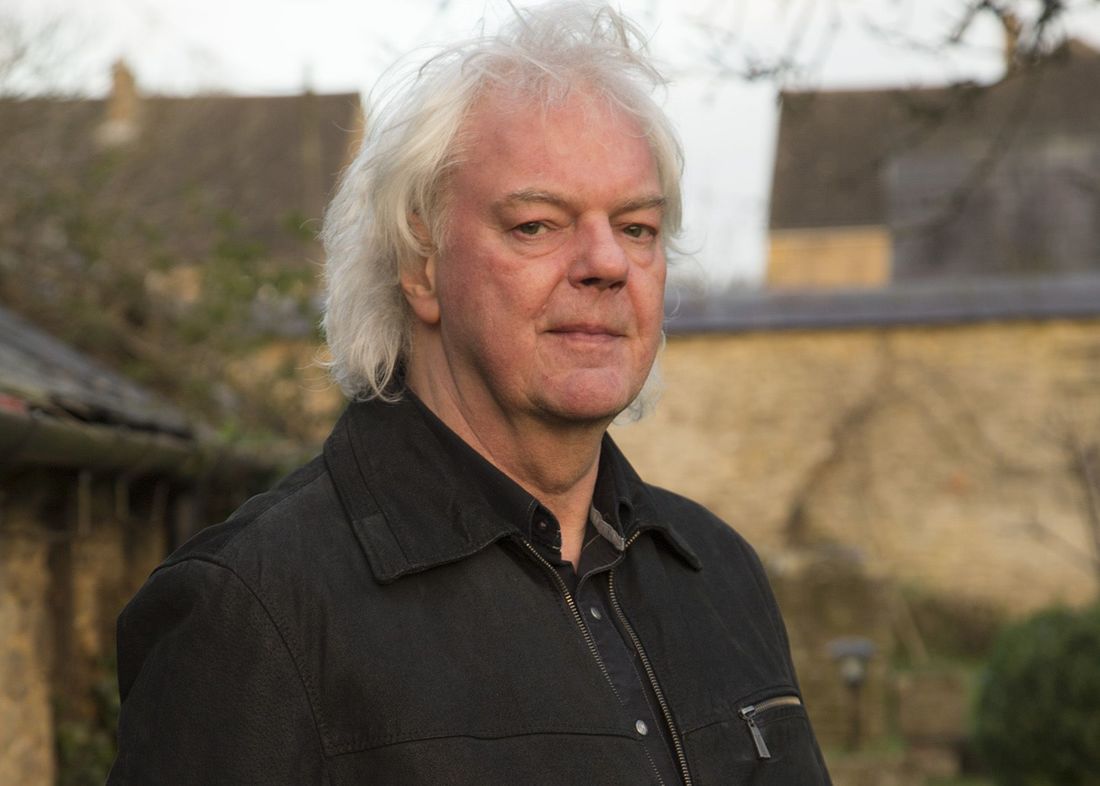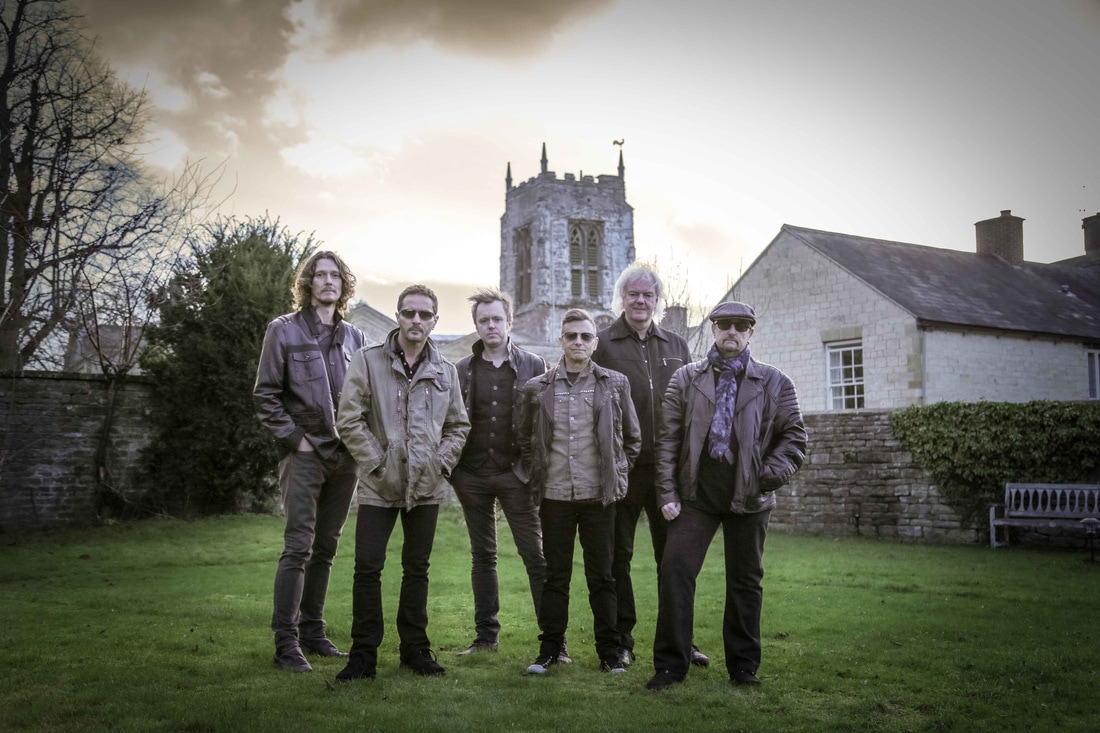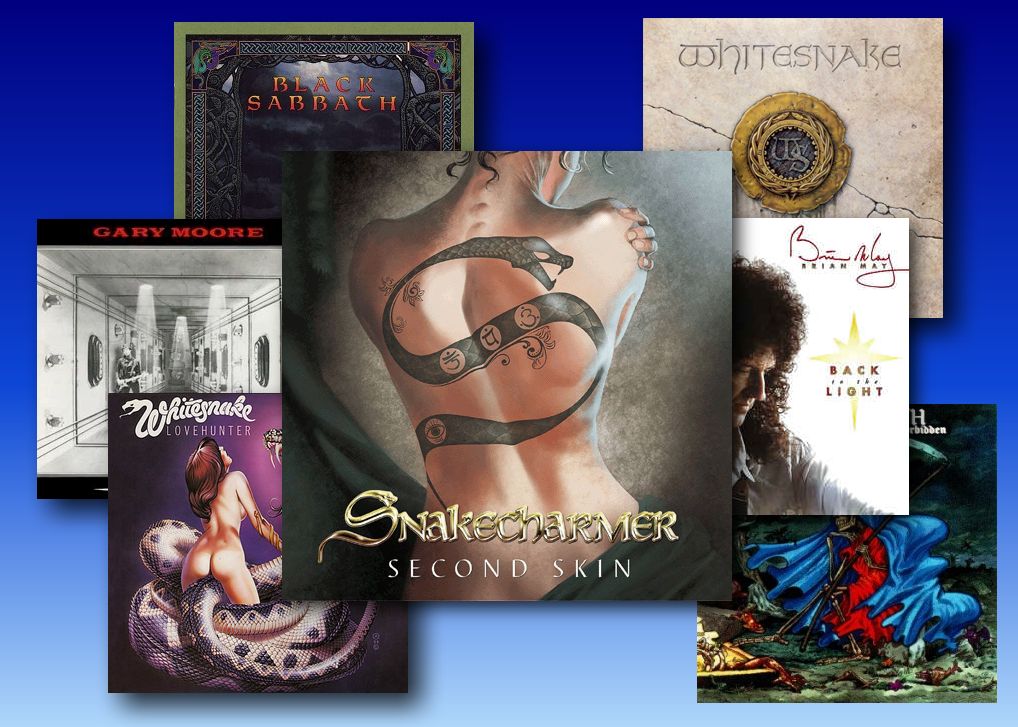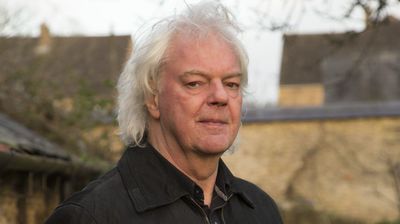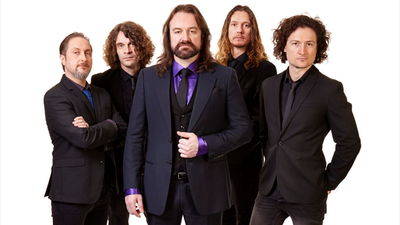|
Neil Murray is one of the most prolific bass players in rock. The go-to guy for some of the genre’s biggest names, he’s been a member of Whitesnake and Black Sabbath among others, and recorded with the likes of Queen’s Brian May and guitar legend Gary Moore. As well as lending his rumbling fingers to some of rock’s greatest anthems, he’s found time to found his own band; Snakecharmer. Back with their appropriately titled second album ‘Second Skin’, we caught up with Neil to dissect his history. Crying in the rain; Eamon O’Neill.
Hi Neil, how are you today?
I’m pretty worn out today after rehearsing. I had a bass masterclass clinic in the West Midlands last night, but they closed part of the motorway and I got stuck in this really bad traffic afterwards. Snakecharmer have quite a sizable UK tour lined up for May. We been rehearsing for the tour. We’re up and down the country, from Scotland down to Devon, but there’s a big chunk in the middle of the country that’s missing. We couldn’t seem to get a Midlands gig like we would normally do. Maybe later in the year, we’ll see. You’re touring in support of Snakecharmer’s ‘Second Skin’ album; do you still get excited when a new album is being released? Well, yeah. In fact, it’s very rare that I do a proper band album, it’s getting fewer and further between. With this one, it’s taken a long time for us to write it, and then to get in the studio and actually finish it. We’d hoped to get it out in February or March so that people would be pretty familiar with it before the tour, but it’s not released until the middle of May. It’s a bit of a shame, as the first few gigs they’re not going to have heard some of the tracks, so Frontiers [record label] have put out four songs now, which is fairly overgenerous, really! Were the delays due to the busy schedules of the various Snakecharmer band members? Yeah, very much so. That’s part of the reason why Micky Moody left the band; because we had to do so much hanging around waiting. Harry James, who plays on drums, plays with Thunder and Magnum and a couple of other bands as well, and more recently Adam Wakeman’s been really busy playing keyboards behind Black Sabbath and with Ozzy, and lots of other things that he does. It’s just part of the business now; you play in different projects and other bands, so it took a long time to get everybody together. ‘That Kind Of Love’ was one of the first tracks released, which is a straight ahead, driving rocker. There’s no particular big masterplan; we don’t try and think of what kind of songs to write. It’s more that they just come together from fairly basic simple beginnings. It’s a very democratic situation, but it usually starts with one guy doing a very rough demo, and Chris [Ousey, vocalist] taking it away and adding vocals and melody lines. It’s a kind of melting pot of all our different styles of playing and influences - we’re not trying consciously to be like Whitesnake, like some people think. Snakecharmer evolved from Company Of Snakes, didn’t it?
Well, yes and no: Company Of Snakes was myself, Micky and Bernie [Marsden] from Whitesnake, and that evolved into M3 Classic Whitesnake, where we only did Whitesnake songs. That finished in 2006 and Micky and Bernie had a falling out, and then it was about four or five years later that a promoter suggested that me and Micky get together and do a similar kind of band. Snakesharmer has of course, evolved into a band with its own identity, since releasing original material. It takes time to find one’s direction, and I think that this album is more hard edged, in some respects, less bluesy perhaps; I mean, you haven’t got Micky’s influences there now. The majority of the songs are written by Laurie Wisefield and Chris Ousey, with input from everybody. In a sense, that gives it more of a direction as well. There were more writers involved on the first album, and we were seeing what worked and what didn’t, and obviously, going out on the road and playing the songs, you tend to find which ones work. It would have been great to take these sounds out on the road first, but it wasn’t possible. I wanted to talk to you about your time in Black Sabbath in the late 1980s and early 1990s; it’s a period that seems to get written off, these days.
Well, as you say, it was sort of under the radar at the time. We did actually do very well in Europe in the late eighties, and then again when I was back with them along with Cozy [Powell, drummer] in the mid-nineties. The main thing was that they’d been with Warner Bros [record company] for many, many years, and then been dropped, and [Black Sabbath founder] Tony Iommi was signed by IRS Records - which was Miles Copeland’s label - and some of that record company’s idea were a little bit leftfield. But also, they didn’t have a great deal of clout, particularly in the States. It was more of an underground, rather punky type of leftfield label, and it seemed really hard for the band to get known in the States in particular. What was it like being in the band at that time? Certainly, one was aware that Sabbath weren’t nearly as big as they had been before, and you’re always fighting against the journalists and the fans for whom only the original band means anything. It’s quite had to get up on stage knowing that people would rather have [original bass player] Geezer Butler up there, for example. But even so, outside of the UK, people were much less hard line about it, and you would meet people who would say; “This is my favourite era of the band”, and they were totally accepting of it. And also, the people who would criticise me, or Cozy or [singer] Tony Martin; they would always conveniently forget that Tony Iommi had brought us into the band and wanted us there. We were not either being his puppets, nor were we boring session men. It’s very hard when a band is revered in an enormous religious way; you just can’t win. Does it bother you that the albums from that era are no longer available? I think it’s been undervalued by the fact that the IRS albums like ‘Tyr’ for example, and ‘Headless Cross’ have been pretty well unavailable in recent years. It’s hard to say to people; “Oh, you should check out this album or that album”, if people then can’t get hold of it. Obviously you can almost get anything these days, illegally or whatever, but it would be great if it was out there. From my point of view, I would like to hear remixes or remasters of the albums that I was on. But no matter whether those albums become more appreciated than they have been, they’re still not what most people think of as ‘Black Sabbath’, and that’s not really going to change. You mentioned IRS having some strange ideas; surely the strangest one of all was having Ice-T rapping on a Black Sabath album? The perception of how the album ‘Forbidden’ was made was slightly different from what actually happened. Certainly, the record company were pushing us to be more current, and more relevant. In the late eighties, when Cozy was almost joint leader of the band with Tony Iommi, there was a leaning towards melodic sensibilities and eighties-type sounds, and when Cozy and myself re-joined in ’94, and discussions were going on about who should produce the album, the original idea was Ice-T was going to produce, in actual fact, but he delegated it to the guitarist from his metal band Body Count, Ernie C. How were the recording sessions for ‘Forbidden’?
It really didn’t gel. It didn’t work. Ernie C brought his engineer over to England and we laid down the basic backing tracks in a week up in Liverpool. Cozy was very unhappy with the sound, and Ernie C didn’t really come up with any interesting or workable ideas, as far as the production went. From that point on, it was sort of out of our hands. I know Tony Iommi redid a lot of the stuff, and went to various studios in L.A. and London and probably had more opportunity to change things around a bit to how he wanted them. But basically, it was a step too far in trying too hard to be up to date, instead of classic. Okay, he was right to move away from something that was a little bit AOR sounding - I mean, the sound of Tony Martin’s voice, compared to Ozzy’s is much more melodic and kind of a conventional rock voice. It was extremely good, but the overall effect is that the music sounds a little bit ‘nice’, and that’s not what Sabbath is supposed to be, really. How did Cozy Powell fell about the sessions? Cozy wasn’t happy anyway that the balance of power shifted, and he was much more just a backing musician than he had been before, and he wasn’t terribly enthused by some of the ideas that were coming out of the record company, or even some of the song ideas. And then, the way the production came out with that very dry, ‘dead’ sound, and the drums being really not sounding particularly like Cozy Powell, was the icing on the cake, really. So was ‘Forbidden’ “the one that should have been forbidden”, as Tony Iommi called it in his autobiography? Well, for me, it wasn’t horrendous. It wasn’t as satisfying as I would like, but the songs really took on a new life, live on stage. Still, Cozy ended up not being very happy with the whole situation, and left the following summer. But, it was still a really good band, no matter what. In between those two stints with Black Sabbath, you worked with Iron Maiden’s Adrian Smith. It’s one of these rather short lived things where you do a session for somebody. It was really just playing on demos for him. There was a situation where I was playing on demos with him on guitar, and another around that time where I was working with Ian Gillan, but I don’t really know whatever happened to either of them. It was just a case of; go up to the studio for a couple of days, put down a few tracks, and that’s the last you hear of it, really. [Click HERE for more on Neil's Adrian Smith sessions.] So you were working with Ian Gillan as well? When you get asked about the same things over and over and over, the bad side of it is you tend to regurgitate the same stories and anecdotes endless times, and with the more obscure things, it takes somebody to ask you directly about it, or to suddenly bring a memory back by something that you’ve said. I would never say; “Oh, by the way, I did some demos with Ian Gillan”, because it never went anywhere, not that I know of. He would get up and sing ‘Smoke On The Water’ with Black Sabbath a few times, and it’s interesting to Purple fans or Sabbath fans, but it’s not something I’d open an interview with! With such a varied career, what are your favourite albums that you’ve appeared on?
It’s probably a couple with Whitesnake; ‘Ready And Willing’, and ‘Come And Get It’, because we’d found our direction as a band, and everything as firing on all six cylinders. I was playing reasonably creative basslines on songs that allowed me to do that, and the production almost featured the bass, in a way. There’s many other things where I’ve played with fantastic musicians, but the songs haven’t particularly lent themselves to me putting much of myself into them, whereas the earlier Whitesnake stuff did. How do you view Whitesnake’s colossal ‘1987’ album? It’s a different kind of Whitesnake, with some very good material. But the frustration is that I know - and I have documentary proof - that I played some quite interesting bass on some tracks, but you can’t really hear it. So, if you talk about certain records, unfortunately, there aren’t very many where I’d go; “oh, this is amazing on all levels”; being satisfying for me, and a very good representation of my bass playing, as well as being great songs, great singing, great production, and very successful. In my case, the list of people I’ve played with has been really long and quite star studded, I suppose, but the amount of albums that I could say; “this is something I’m incredibly proud off” because of ticking all the boxes, that’s very few and far between. Finally, aside from the Snakecharmer album and tour, what else have you got going on this year? Well, the summer is actually pretty empty. I play with Bernie Marsden, and we’re back over in Ballyshannon for the Rory Gallagher Festival at the beginning of July, and then I’ve got a couple of small festivals with him. I also go to Germany to be a guest on this thing that they have every year; Warwick basses, which is like a big bass camp where they invite hundreds of the best bass players in the world, and it’s just great to meet your heroes and stuff. In the autumn I’m over in Sweden once again playing lots of Queen songs with the people I used to be in [Queen musical] ‘We Will Rock You’ with, and that’s a big arena tour. The last one we did a couple of years ago was hugely successful. It’s not a musical, it’s just a very well presented gig, playing Queen songs to 10,000 Swedish people. It’s great to be playing those bigger gigs. Admittedly, I’m being [Queen bassist] John Deacon instead of Neil Murray, but there you go! Like this interview? Like us on Facebook and follow us on Twitter for regular updates & more of the same! Snakecharmer’s ‘Second Skin is released on 12th May 2017 via Frontiers Records. Snakecharmer 2017 UK Dates. 5th May – Cardiff, The Globe 7th May – Bingley, Arts Centre 10th May - Hull, Fruit 12th May – Sheffield, The Plug 13th May - Tavistock, The Wharf 14th May - London, O2 Academy Islington 18th May - Glasgow, O2 ABC2 19th May – Newcastle, O2 Academy 20th May - Alva, Masonic Hall 24th May – Preston, Guildhall 25th May – Milton Keynes, The Stables 26th May – Frome, Cheese & Grain 27th May – Holmfirth, Picturedrome |
|
Neil Murray
"The list of people I’ve played with has been really long and quite star studded, but the amount of albums that I could say; “this is something I’m incredibly proud off” because of ticking all the boxes, that’s very few and far between."
© 2016 - 2024 eonmusic.co.ukContact: [email protected]
|

